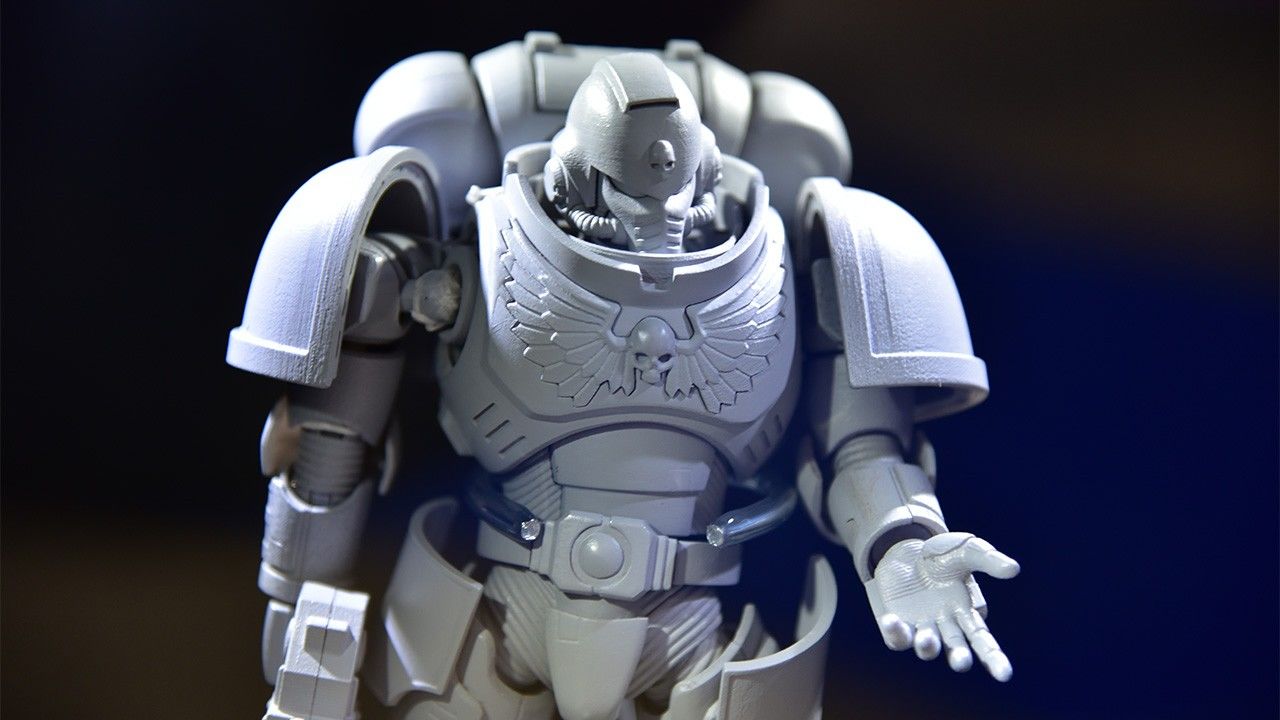
Games Workshop: Building a Hobby Empire in Japan One Figure at a Time
Society Culture- English
- 日本語
- 简体字
- 繁體字
- Français
- Español
- العربية
- Русский
While Games Workshop has legions of hobbyist fans in regions like Europe and North America, the British figure and table-top gaming pioneer has yet to garner the same degree of name recognition in Japan, where it remains mostly a niche brand. Recent developments suggest, however, that after more than two decades navigating the country’s diverse hobby market, things are beginning to change.
In May the Nottingham-based firm announced a deal for Japanese toy giant Bandai to develop and distribute a series of large action figures and stylized miniatures based on Games Workshop characters. The tie-up is in many ways the outcome of the company’s push to boost its Japanese presence and bodes well for further growth in the land of Gundam.
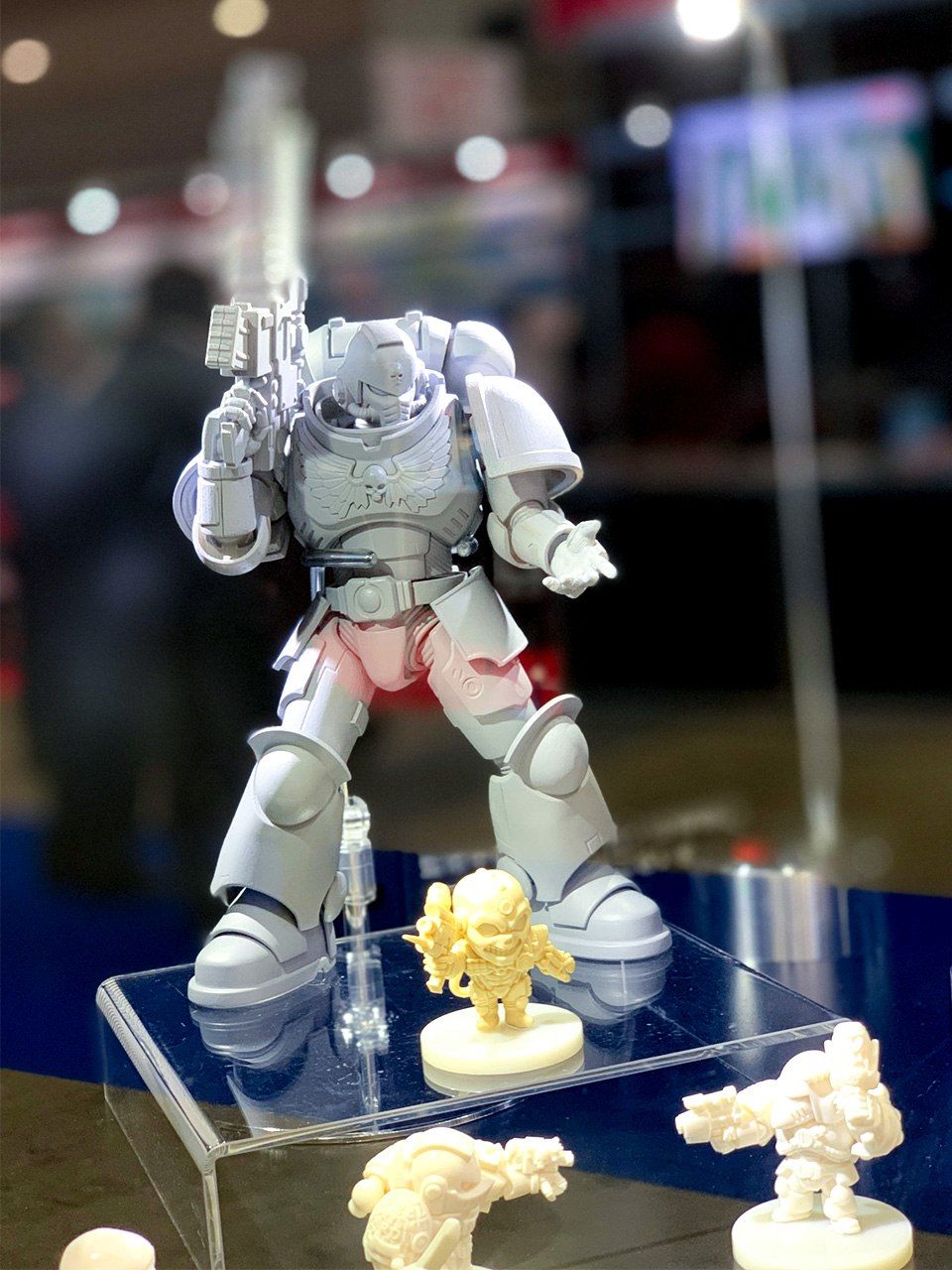
Prototypes of Bandai’s Space Marine action figure and capsule toys at the International Tokyo Toy Show in June 2019.
A New Direction
Under the licensing deal Bandai will produce an 18-centimeter action figure from the Warhammer 40,000 Space Marine series. Sneak peeks online and at hobby events have sparked buzz over the model’s size, moveable joints, and exchangeable weapons, features that differ from typical Games Workshop figures. However, Bandai is aiming for a high degree of authenticity and is said to be consulting closely with Space Marine lead creator Jes Goodwin.
Fidelity to the original is less of a concern for Bandai’s other product, a line of 5-centimeter figures for gashapon capsule toy vending machines. The set of miniatures, five in all, are designed in what is known as the super-deformed style with all parts intentionally out of proportion. Bandai will sell the tiny figures in a blind-box format, meaning that collectors will not know what they have until they open the packaging.
The partnership has taken some pundits by surprise, particularly with regard to Games Workshop’s track record of closely guarding its intellectual property. But James Long, the company’s Japan sales manager, points to Bandai and collaborations with other Japanese hobby companies as well as a tie-up with Funko, an American maker of vinyl figures, as evidence of a change in approach. “We’ve been opening up to doing different things the last few years,” he asserts.
Long says the Bandai deal grew from mutual interest. “They had been looking at our products in Japan around the same time that we were mulling over the idea of doing something like the capsule toys.“ Once the two sides started talking, the discussion turned naturally to action figures, a staple for Bandai, and then on to licensing. Long states with a hint of pride that while people at the headquarters in England did most of the heavy lifting, the Tokyo office played a part in getting the ball rolling.
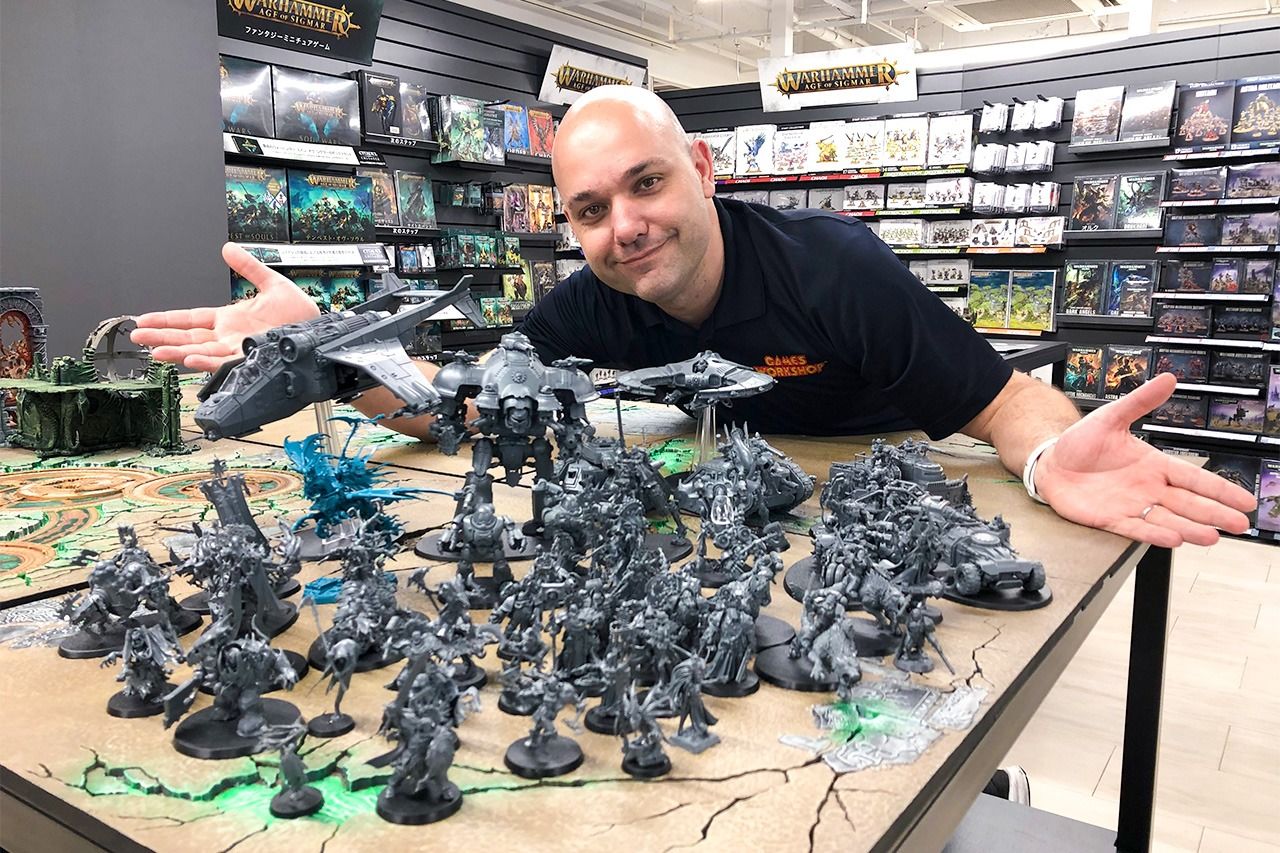
James Long, Japan sales manager for Games Workshop. The Seattle native says he went from fan to company man, working his way up from a store manager in the United States to his current position.
Bandai says it will release the figures globally, although it has yet to set a launch date. Unlike Games Workshop miniatures, the products will come fully painted. However, Long says with a grin that he does not expect this will deter hobbyists from completely repainting the models or adding their own personal touches.
Setting Up Shop
Founded in London in 1975, Games Workshop brought its distinct brand of hobby to Japan around 1987. The firm started out hawking its miniatures and other wares at small, independent retailers. It diligently carved out a foothold in a Japanese market swarming with figures, and by the early 2000s it ran nine dedicated stores in areas like Tokyo’s Jinbōchō district and Nakano Plaza in the western suburbs of the metropolis that were frequented by lovers of subculture.
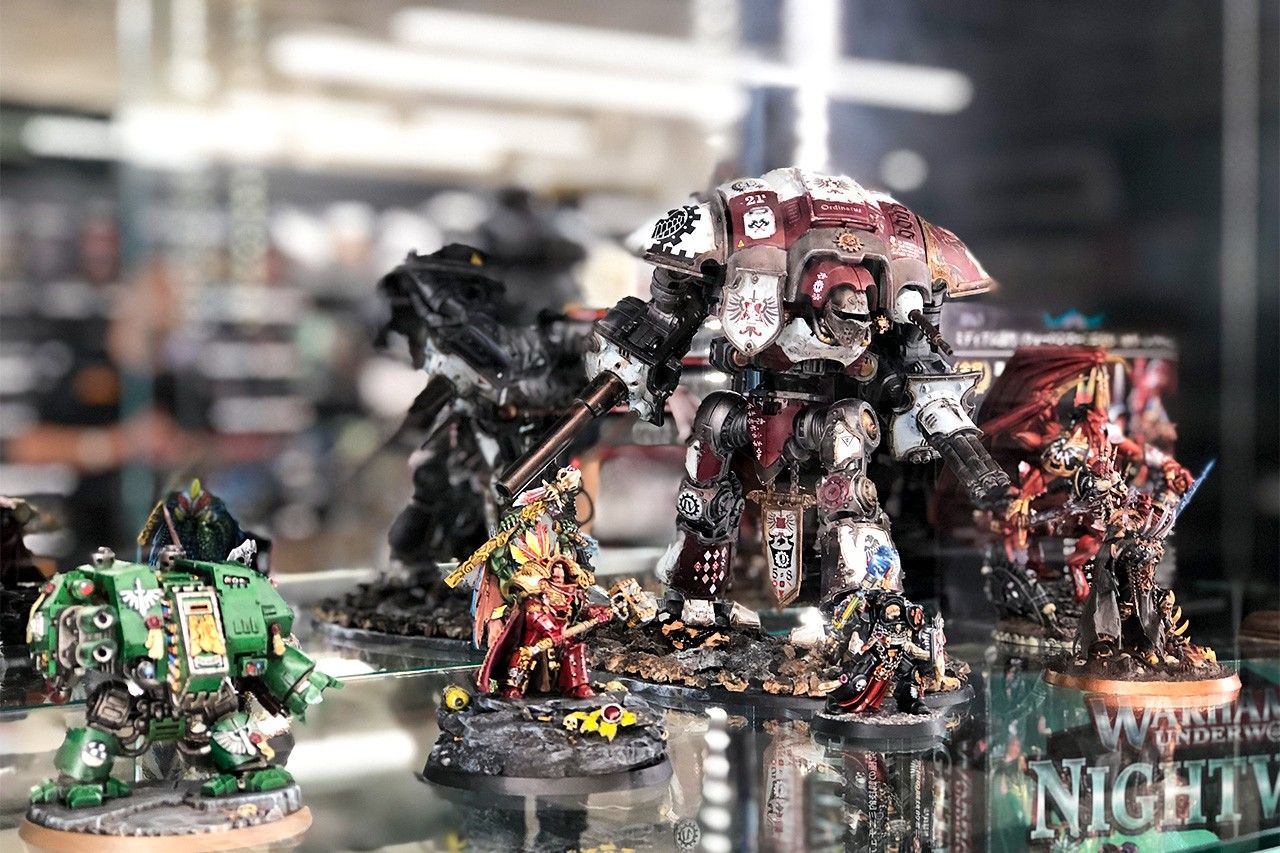
Games Workshop figures can be painted and enjoyed on their own or as part of table-top gaming.
Business hummed along for several years with a translation team cranking out Japanese versions of the massive rule books and volumes of lore that are the backbone of Games Workshop. However, in 2010 the firm restructured its global operations, leaving Japan with just two shops and a modest band of independent sellers. Executives in England also pulled the plug on the translation team, forcing shops and sellers to make do with wordy English versions of products that were often impenetrable to Japanese customers.
While a loyal fanbase and niche appeal of products helped the brand ride out the shakeup, business was far from thriving. With few offerings in Japanese, Games Workshop struggled to fully resonate with potential customers, particular the all-important youth market.
Hitting Restart
Long left his retail role at the US headquarters and came to Japan in 2015 tasked with the job of bolstering Games Workshop’s presence. He joined a small team at the Tokyo office—just five staff and himself—and focused resources on opening new shops and growing the number of independent retailers.
Although Long was struck by the change in scale—Japan had just two dedicated stores compared to some 90 in the United States—he insists that the feeling on the ground was familiar. “The people coming to stores loved building and painting models and playing games,” he explains. In talking with patrons and retailers, though, he quickly recognized that only having information in English was hurting business.
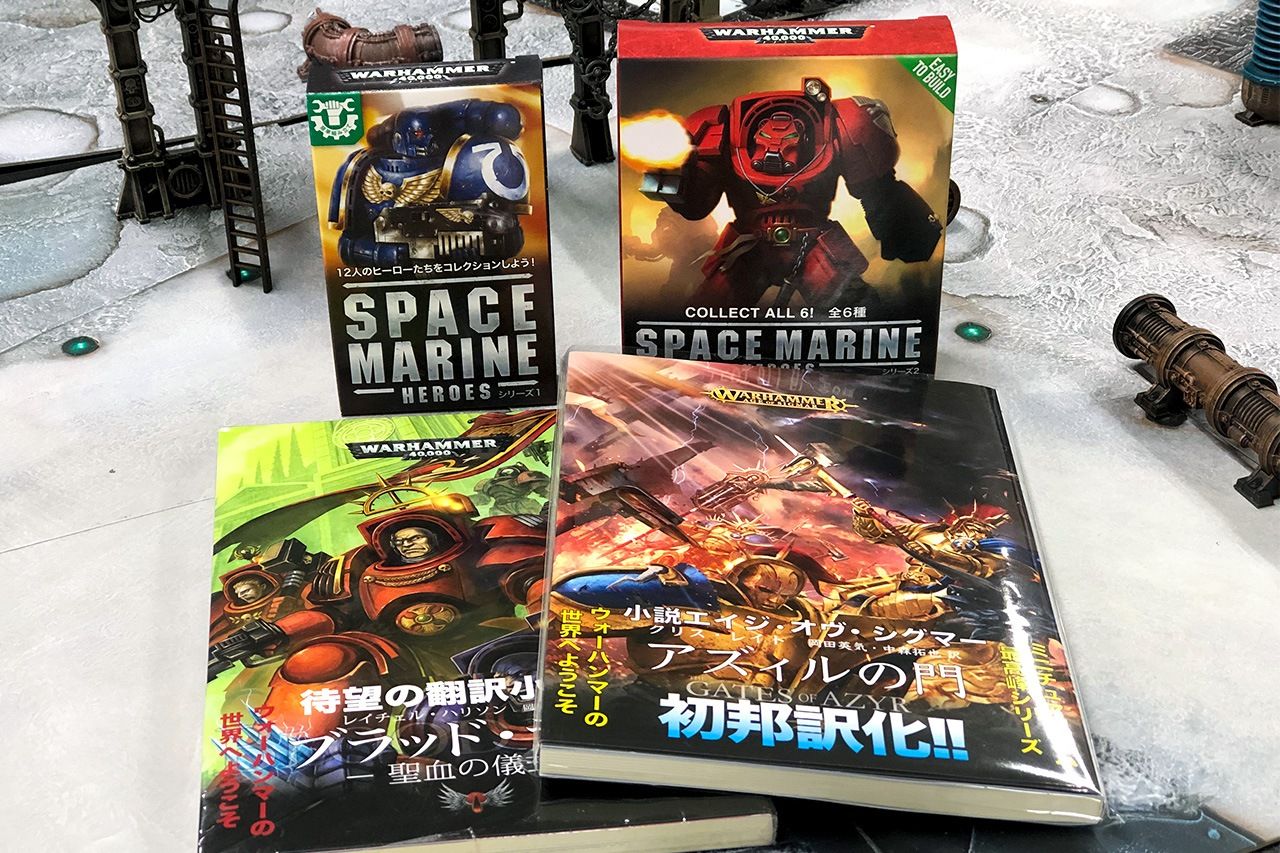
Games Workshop has been hard at work creating Japanese versions of its products, including special figure series and novellas.
One of the first steps the Tokyo team took to remedy the situation was to sit down and translate the rules of a basic box game called Betrayal at Calth into Japanese. To everyone’s relief the Space Marine-themed product sold well, although Long admits with a wry smile that people were initially more excited about the miniatures than the game itself. However, he asserts that the product succeeded in what it was supposed to do by introducing newcomers to the Games Workshop style of hobby.
The triumph spurred further conversations with the UK headquarters about increasing the number of Japanese-language starter products. The first of these came when Games Workshop rolled out a new edition of its widely popular Warhammer 40,000 series. The firm also developed a brand-new line called Space Marine Heroes that launches first in Japan. Sold individually or in a set, the figures have been a hit, with the third edition of the series slated to hit stores later in 2019.
However, creating Japanese version of products came with its own headaches. Games Workshop has its own distinctive and indelible jargon and Long says one of the first challenges was recreating this in Japanese. “We had lost all the old translations,” he recalls. This forced translators to hash out a Japanese style that resonated with customers while staying true to the original sense of the series. Long maintains that after countless back and forth with the Tokyo office the translation team has managed to iron out most of the linguistic kinks.
Shirane Ryūji, who runs the company’s store in Tachikawa in western Tokyo, underscores the importance of adapting products for the Japanese market. He says that many new customers come because they are interested in painting figures and then get hooked exploring the stories and backgrounds of characters. “There aren’t many brands in Japan that approach the depth that we have,” he asserts. “We have built up a mind-boggling amount of lore over the last thirty years.”
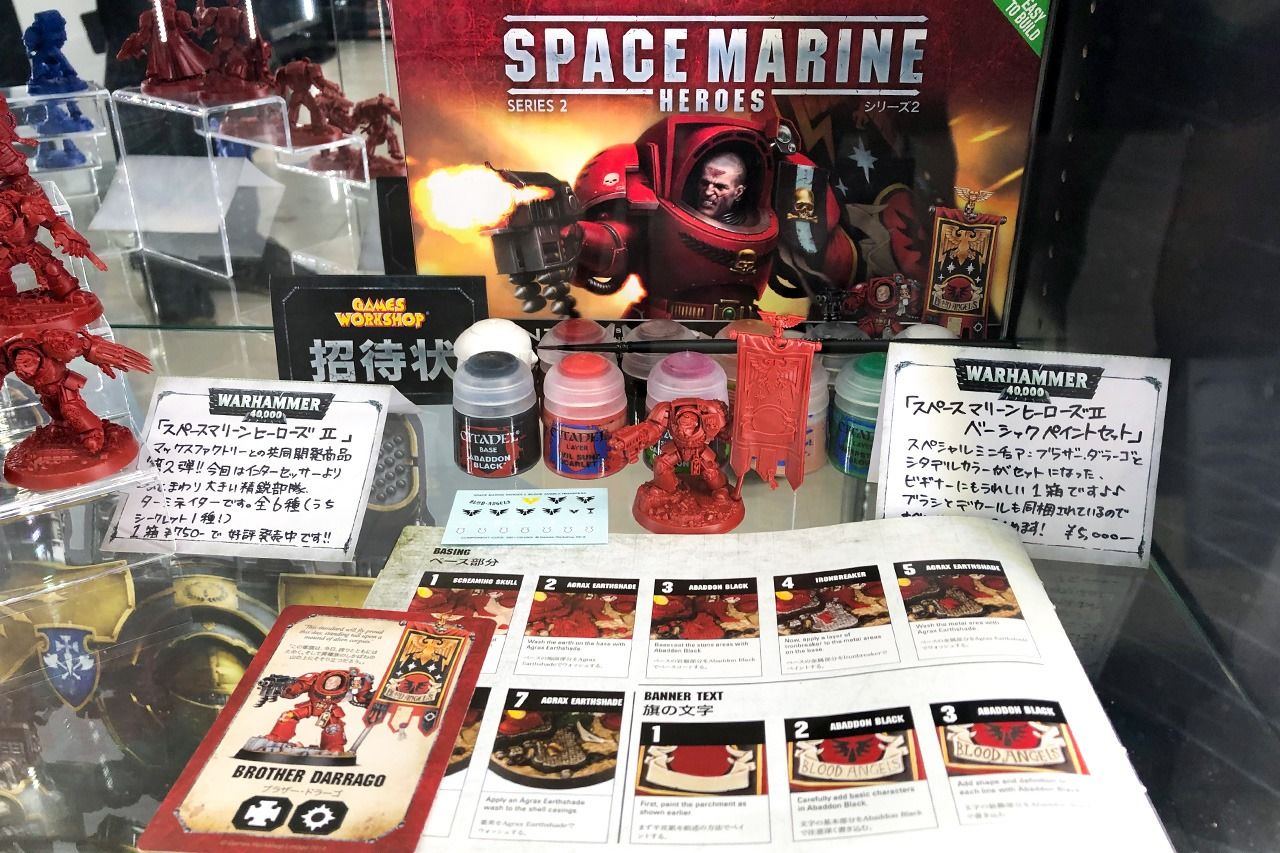
A special boxed paint set for the second series of Space Marine Heroes. The starter product was a huge hit and quickly sold out in Japan.
Growing the Business
The tie-up with Bandai is not the first for Games Workshop. When the firm launched its Space Marine Heroes it turned to modeling company Max Factory to help with distribution. It has also inked a licensing agreement with Tokyo’s Prime 1 Studio, a maker of deluxe, lifelike figurines and statues.
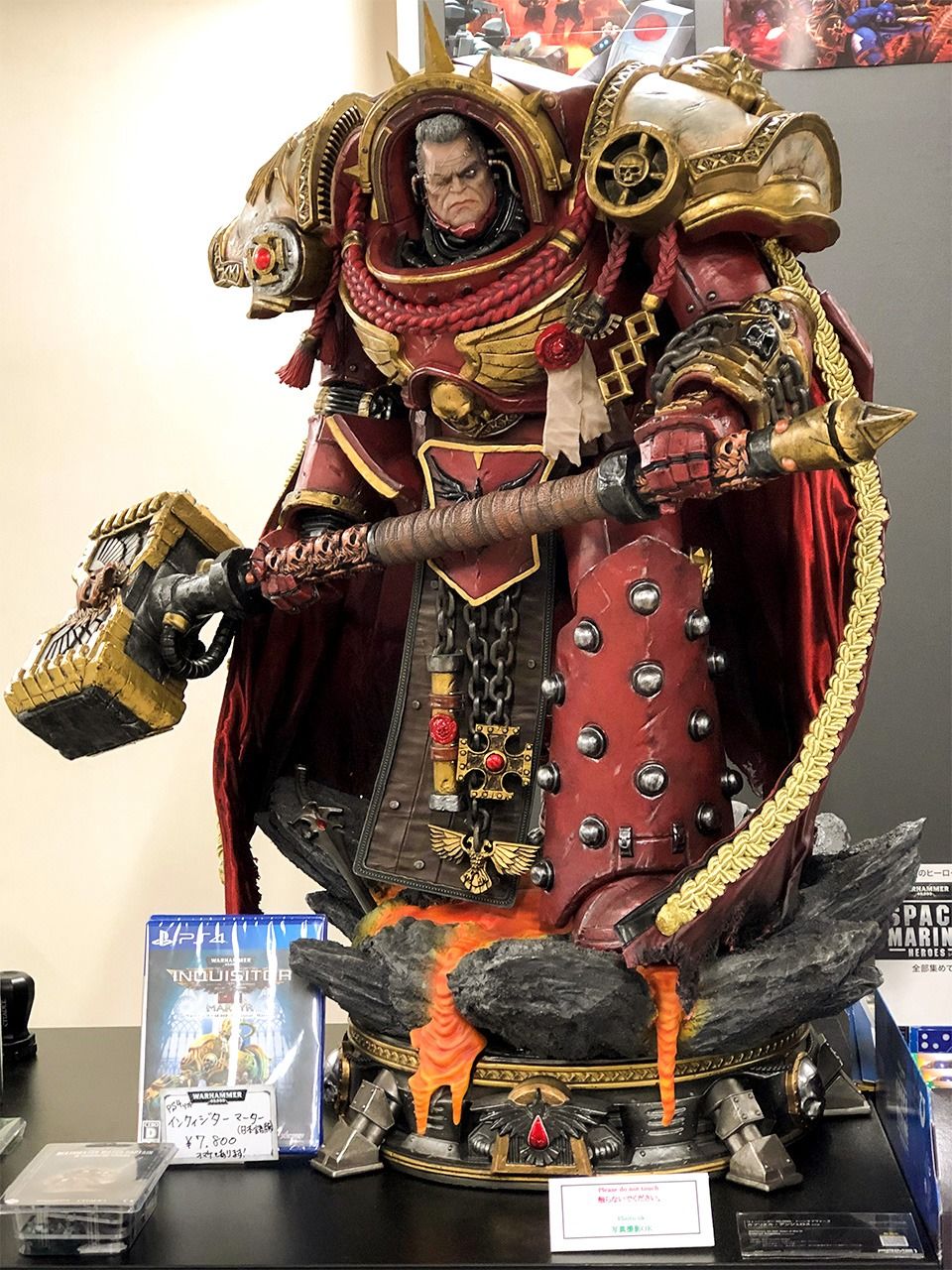
Prime 1 Studio offers a towering version of Games Workshop character Gabriel Angelos for a whopping ¥ 169,000.
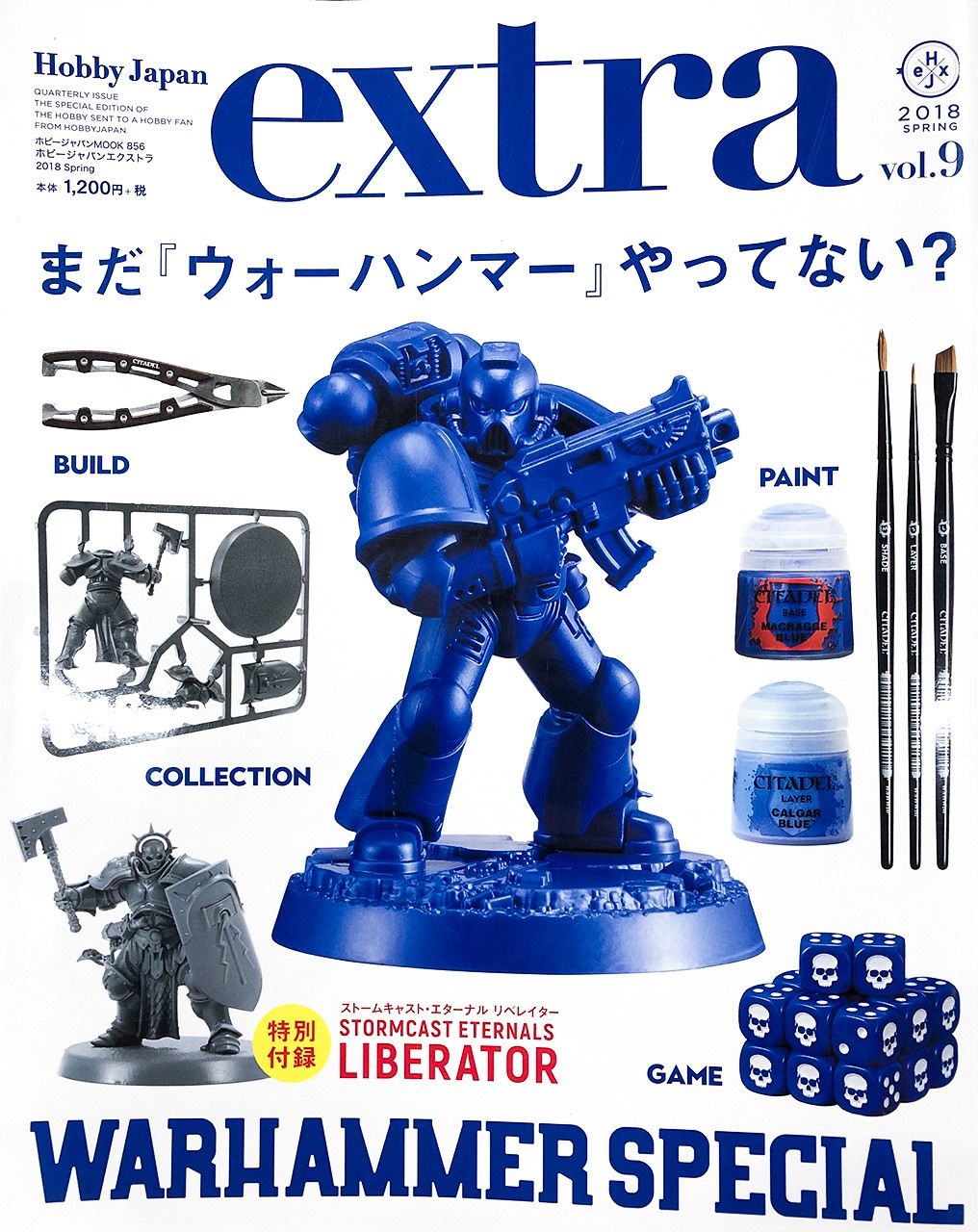
The spring 2018 special Games Workshop edition of Hobby Japan.
However, the relationship with long-running magazine Hobby Japan has been one of the most rewarding in terms of boosting Games Workshop’s status. In 2018, the publication, a leading name in the industry for the past 50 years, printed a 95-page, full-color special edition chock-full of Games Workshop character lore, painting tutorials, and interviews with well-known Japanese hobbyists. Long lauds the magazine for introducing the brand to Japanese hobbyists: “After the special edition came out, people who had read about us started coming to stores to learn more.”
Games Workshop currently runs eight dedicated stores in Japan—six in the Kantō region and two in Kansai—and has plans to open many more. Long says that Japan is now in sync with the studio schedule, meaning that new products and series updates include Japanese versions.
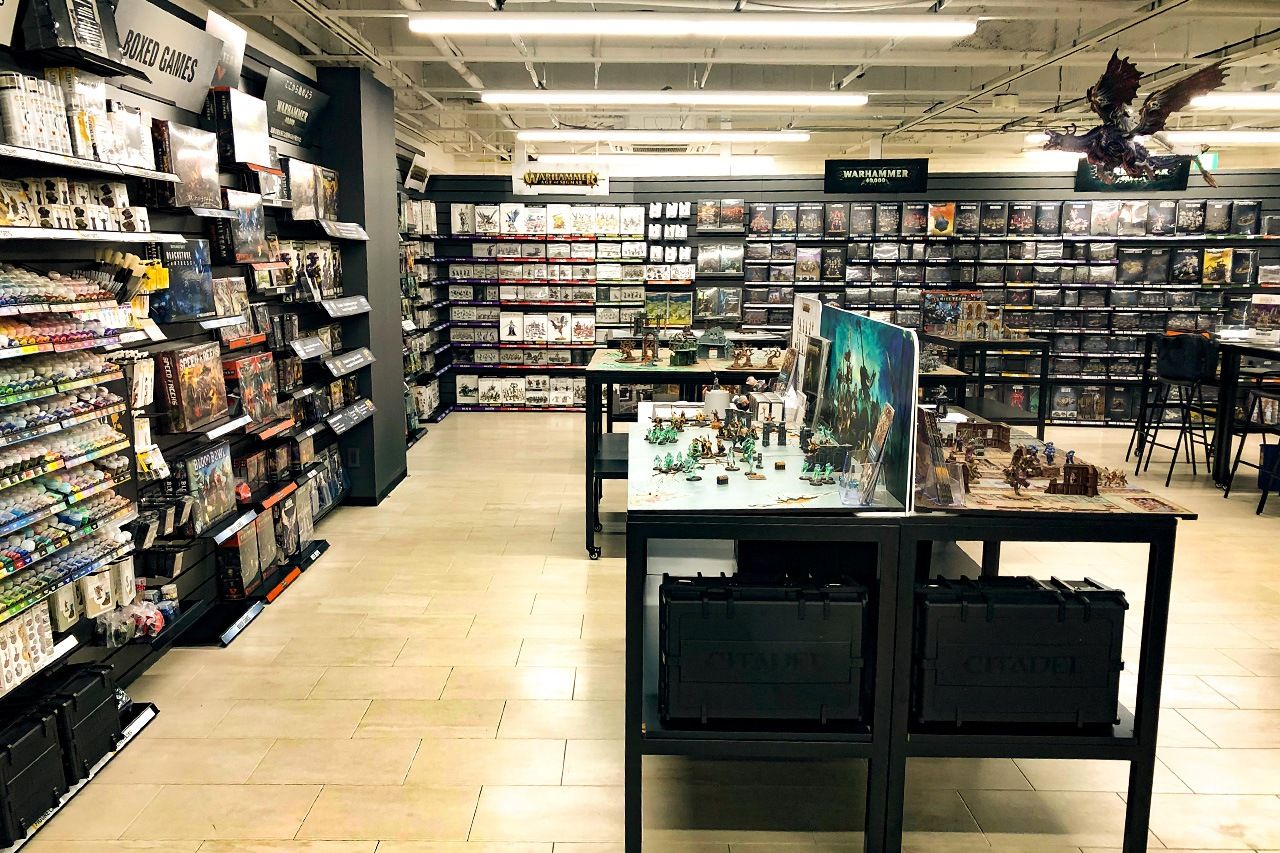
The Tachikawa store in Tokyo is one of Games Workshop’s biggest in Japan.
It has taken time for the Japanese arm of the business to get back on track, but Long is confident of success, exclaiming. “I firmly believe there is a bright future ahead.”
(Originally published in English. Banner photo: Bandai’s prototype Space Marine action figure on display at the 2019 International Tokyo Toy Show. All photos © Nippon.com.)